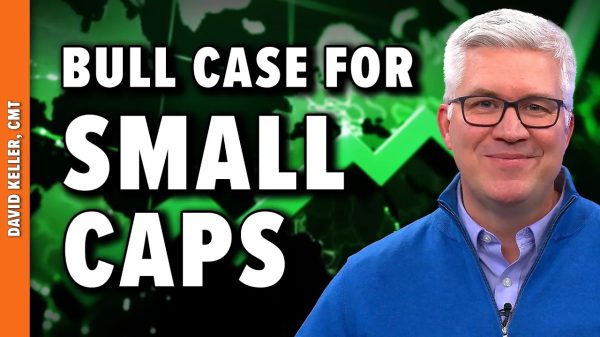As a frequent X/Twitter user, I follow a variety of accounts that touch on a number of niches: whether that is economics, finance, Catholicism, college football . . . or in this case, Lord of the Rings. A popular Twitter account that regularly shares content related to J.R.R. Tolkien’s work broke from character to offer an insight on another tweet. In the tweet he refers to, a food inspector is shown interrupting the business of a diner, which the poster laments. Middle-Earth Mixer, the Lord of the Rings account, offers insight:
The problem with Libertarianism is it leans on the old Marxist adage, “You have to break a few eggs to make an omelet.” Except in this case the idea is, “A few people need to die of food poisoning before we know which diners are good.”
While this may be too much insight for one tweet, I feel it offers a unique question. Is market regulation inferior for relying upon the “breaking of a few eggs?” Are we forced to wait for harm to occur before we act to protect people? Is the government needed to protect people from being poisoned?
Well, first, everyone can acknowledge that poisoning or harming your customers is bad business. The incentive, if one hopes to honestly make a living serving food, is to protect one’s customers, otherwise a reputation will form that will dissuade newer customers. Furthermore, it is not as if one is ever allowed to negligently harm others without restitution. Tort law is almost universally accepted by modern society. If a person or business causes damage to another’s property or their person, they may be held liable even if it is not intentional.
Negligence leads to restitution, thus there is a necessary pressure that pushes restaurant owners to take care and remove possible opportunities for it to occur. Yet, accidents do occur. No business wants to pay for significant harm caused to people because of an accident. Not every business can afford to do so. So how does a business account for this?
Much the same as homeowners, where no one necessarily expects their home to be damaged, insurance provides an opportunity to guard against the worst circumstances. Businesses, like restaurants, have an incentive to be insured against tragic accidents.
On the other side of the transaction, no insurance agency wants to pay out to every business. This is why insurance firms have terms to their agreements. A car insurance company might install a tracker to make sure you stay below certain speeds. It might require maintenance on your vehicle.
Much the same, the insurers of a restaurant may make similar demands: inspections, certain equipment, specific cleanings. All the same requirements without a possibly politically motivated inspector. Political regulation mechanisms fall victim to regulatory capture. Those already established businesses can lobby the regulatory body to favor them over new competitors or increase the cost of compliance. Political favoritism begins to trump true quality control.
Political regulation is subject to problems that market regulation is subject to now. In an insurance model, the insurer is incentivized to maximize revenue through allowing more businesses to be insured and paying out as little as possible, taking measures to minimize risk claims. Thus, the natural market mechanisms will minimize risk of damage.
This is contrary to the government regulatory model. The regulatory model may have requirements and infrequent inspections, but it often falls victim to the very thing thrown into question. Regulatory agencies treat issues in fines. Insurance firms deal in acceptance of payment and promise of coverage. A regulatory agency will often only shut down a firm after its failings—after an accident or negligence has occurred. In many cases, a “few eggs have to break” to deal with problems.
An insurance system is entirely preemptive. An insurance firm does not want to pay out in any circumstances. It will not insure a business that does not meet its requirements. That business will not be able to operate or it will lose everything as a result. An insurance system is not easily bribable, because if it lowers its standards then it will pay out at a massive scale to the barely compliant. Why be a customer at a noninsured business? The insurance system succeeds where regulatory systems fail.
However, there is also a demand-side protection for consumers. Look only at websites like Yelp or reviews on Google Maps. Poor experiences are shared every day, ensuring that customers only visit the highest-quality restaurants. Cleanliness matters to consumers just as much as producers. So, it naturally follows they will demand evidence of cleanliness and safety before they accept food. That is where rating agencies, much like insurance firms, enter to certify cleanliness. Firms, to win concerned consumers over, might pay these rating agencies to review their restaurants.
Of course, they might cheat. The check, however, is that the rating agency may become untrusted and go out of business should it be found out they are deceptive. A regulatory agency like the Food and Drug Administration or United States Department of Agriculture cannot go out of business and as a result fall victim to regulatory capture and corruption.
The market, ultimately, is far more efficient than any regulatory agency in protecting consumers. Agencies that provide information are just as beholden to consumers and consumer safety as the firms they rate. Regulatory agencies lack proper oversight or accountability to provide the same information correctly. Regulatory agencies allow people to be lulled into a false sense of security when there is every reason to doubt the agency itself. It has no reason to operate efficiently or in the light of day. Market mechanisms do not have this defect. They are forced to be vigilant, attentive, efficient, and preemptive. Failures reflect on revenue, and revenue is life in the market.
We need not crack any eggs at all. The market doesn’t ask that of us. Regulatory agencies allow eggs to fall through their fingers, and when the yolk scatters on the floor the hand isn’t punished. The invisible hand of the market is far steadier and safer.























